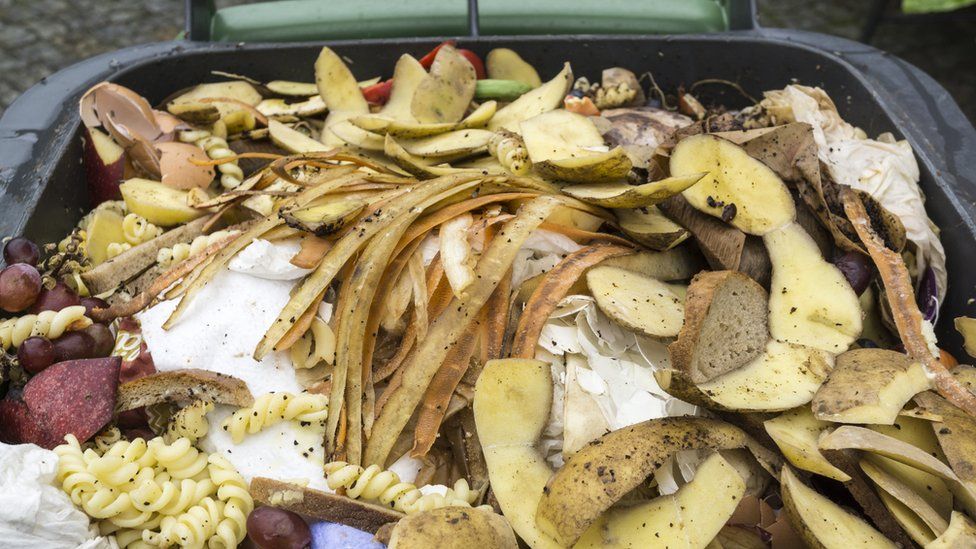Scotland's food waste causing more greenhouse gas than plastic
- Published

Food waste is a bigger cause of climate change than plastics, according to Zero Waste Scotland.
The government-funded body has urged people to cut down the amount of unwanted food they put in the bin.
When food waste ends up in landfill it rots, producing methane gas, one of the most damaging greenhouse gases driving climate change.
Research by Zero Waste Scotland found that 456,000 tonnes of food waste was collected in Scotland in 2016.
About 224,000 tonnes of plastic waste was collected that year.
Zero Waste Scotland has launched a Food Waste Reduction Action Plan with the Scottish government in an attempt to reduce food waste across Scotland by a third by 2025.
'Seriously damaging'
Chief executive Iain Gulland said: "It might seem bizarre but scraping that leftover lasagne, mince or salad from your plate into the bin is seriously damaging the planet, because when those scraps of pasta and lettuce which you never got around to eating end up in landfill, they rot.
"As they break down, they emit methane, which is many times more harmful in the short-term to our climate than carbon dioxide (CO2).
"Food waste is actually a bigger cause of climate change than plastics."
However, he added it was still vital to reduce plastic waste, which remains an "extremely serious issue". It also causes damage to the environment and wildlife when discarded inappropriately.
Zero Waste Scotland has estimated that every Scottish household could save an average of £440 a year by reducing the food it wastes through steps such as planning meals, making better use of storage such as freezers and being inventive with using up leftovers.
'Shared responsibilities'
Only 93,000 tonnes of the food waste collected in Scotland in 2016 was sent to dedicated food waste recycling collections, with most of the remainder sent to landfill, while around 150,000 tonnes went to home composting or ended up in sewage works after going down the drain from kitchen sinks.
Zero Waste Scotland calculated that the carbon footprint of food waste collected from Scottish households that year was nearly three times that of plastic waste collected from people's homes, at roughly 1.9 million tonnes of carbon dioxide equivalent (MtCO2e) compared to 0.73MtCO2e.
The Scottish government has also launched a new advertising campaign, entitled Food Gone Bad, to help raise awareness of the impact food waste has on climate change and how to reduce it.
A Scottish government spokesperson said: "Following the first minister's declaration of a global climate emergency, we are reviewing a range of policies across government to ensure we do all we can to support the public sector, businesses, communities and individuals to meet our shared climate responsibilities.
"We would encourage everyone to consider what more we can all do to help reduce food waste."
- Published9 May 2019
- Published25 April 2019
- Published2 May 2019
- Published1 May 2019